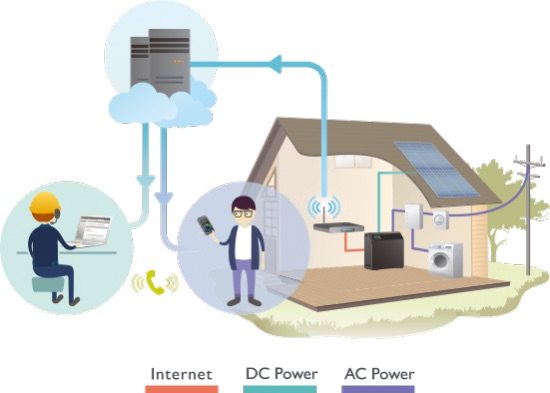

Electricity retailing giant AGL Energy has expanded its residential battery storage range, with the launch on Thursday of two new, larger battery systems at 11.6kWh and 19.4kWh, catering to customers with bigger rooftop solar systems and with greater levels of energy consumption.
The new offerings come just four months after the gentailer surprised the market with the launch of its 7.2kWh Powerlegato battery system – made by its Taiwanese partner AU Optronics – at what appeared to be heavily discounted price of less than $10,000 each.


The two new battery systems, described as “Large” and ”Extra Large”, will be offered at a price of $14,990 and $19,990, respectively, as part of AGL’s Power Advantage Club – a network established in May when AGL became the first of Australia’s major utilities to roll out a battery storage product to its consumers.
The new batteries also come from a different supplier – US-based solar and storage company, Sunverge – and they come with an inverter and with installation included in the price.
According to AGL’s specifications (see table below), the large (11.6kWh) Sunverge system is best suited to a three or four bedroom home, with a 4.5kW+ solar system. The extra large system (19.4kWh) caters to a five or more bedroom home, with a 5kW+ Pv system.
According to an example provided by One Step’s most recently featured professional, Solar Choice, an average Sydney home with a 5kW solar system would need a battery with at least 11kWh of capacity to cover peak and shoulder demand in summer, but about 20 per cent of electricity demand would still need to be met by the grid.
This same house with a 20kWh battery storage system would achieve 77 per cent of energy self-sufficiency on an average day.
Another notable difference in AGL’s new Sunverge battery offerings is that they can be installed either indoors or outdoors, a rare capability for most current offerings on the market – many lithium-ion batteries, in particular, are too sensitive to extremes of temperature to be installed in the elements – that puts them on par with Tesla’s Powerwall.
As we have noted on our sister site before, the San Francisco-based Sunverge last year finished a major fund raising that was led by Australia’s Southern Cross Venture Partners ($A15 million sourced from the Australian Renewable Energy Agency), German industrial giant Siemens and France’s biggest oil company Total.
Its battery storage and energy management systems have also been deployed in the groundbreaking solar-plus-storage leasing program from New Zealand energy utility Vector.
Ken Munson, the company’s founder and head of smart energy systems – which is Sunverge’s bread and butter – has described Australia as a “key market” for his company, and “one of the most interesting in world.”
As for AGL, it says it plans to “continually develop” its suite of battery storage products, offered via a range of different payment methods.
“There has been strong consumer interest in energy storage,” said AGL executive general manager of New Energy, Marc England, in a statement on Thursday.
“AGL has spent the last few months learning from the more than 4,000 customers who signed up to our Power Advantage Club. These new storage products are the result of that learning and we will continue to innovate our offers to meet further customer needs.
“The new additions to the range are suitable for larger family homes and can, for example, be located either inside or outdoors, used as back-up, and power a whole house to maximise energy savings,” he said.
Sophie is editor of One Step Off The Grid and deputy editor of its sister site, Renew Economy. Sophie has been writing about clean energy for more than a decade.
This post was published on November 5, 2015 2:16 pm
Rooftop solar installs hit the doldrums as consumers wait to see what the major parties…
Report warns excluding cooktops from residential gas phase-out could take a big bite out of…
US energy economist says we have got our electricity tariffs all wrong, by focusing almost…
Wayne Smith from the Smart Energy Council on what to expect from the federal home…
OpenSolar joins forces with LoanOptions.ai to help consumers access finance to invest in rooftop PV…
Both major political parties are being urged to cut the price of household solar batteries…
View Comments
Disappointingly predictable from New Energy's ex-CTO - Paul Fox (previously Southern Cross Venture Partners). Hope to see something more innovative in the future.
“There has been strong consumer interest in energy storage,” said AGL executive general manager of New Energy, Marc England, in a statement on Thursday.
Please can you tell us how many you've actually sold Marc?
It's not a popularity contest. Why not focus on explaining the tech specs like how the system is setup, is the battery on float as a backup battery hence not used 99% of the time and any strings attached with the contract? What's the payback? As far as I can see it functions like a grid connect system, looks like its focused on exporting, hence a longer payback. I'm not sure. Your the expert.
You know how for appliances there's Choice Magazine and for cars there's the state auto club mags. They test and drive things. Then report back to consumers about strengths and weaknesses. Evaluate. Applied rather than theoretical research.